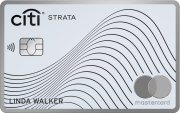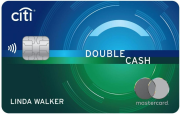The content on this page is accurate as of the posting date; however, some of the offers mentioned may have expired.

Sad to say, but for many people, 'credit cards' and 'debt' have become synonyms. Just like anything else in life, credit cards have their pros and cons and having the one in your wallet does not necessarily mean that you will get yourself in a debt pickle. There are, actually, many borrowers who use credit cards regularly without paying anything in interest.
Here are the tips for those people want to know how to stay out of debt or how to settle debt problems to avoid big finance fees associated with debt.
Owing money doesn't automatically mean being in credit debt. In fact, a credit card is a very powerful financial mechanism that can help you make the most of your finances. The key is to know how to use this product responsibly.
The secret is quite simple – be sure to charge only the things you can afford. Whether you tend to make impulsive shopping decisions or you use your card to bail yourself out of financial trouble, there's no way to blame pieces of plastic for that. To be able to use your credit card responsibly, you should have accurate knowledge of your current cash flow situation. For this, you need to track your ongoing charges and analyze them. A well-thought-out and realistic family budget will surely help you.
When it comes to choosing between credit card applications, there are two important things to take into account – how much you'll be charged for borrowing money and how long it will take you to pay the balance off.
Using your card for financing some purchase can really make sense. If you don't have the required amount of money at the moment, you can buy something, but be sure to repay it in the nearest future.
Unfortunately, some borrowers do not pay close attention to the length of the repayment period. The shorter this period, the less interest you will pay. Let's say you make some big-ticket purchase of $1,000 on your card with the interest rate of 15%. If you repay this balance in three months, you will pay only $37.5 in interest. While carrying this balance over years may cost you hundreds. Make it a personal rule to pay the bills as soon as they arrive, don't dawdle!
Remaining debt-free is not only advisable for your bottom line, but for your credit score as well. Keeping the balances under 30% of the available credit card limit allows you to maintain a positive score rating. On-time repayments are also critically important for your score rating. If you fall behind with your payments, your creditors will report this to major credit bureaus and your missed payments will surely have a negative impact on your score rating.
As for those borrowers who already have debt, there are certain ways to eliminate it. Having and sticking to a debt reduction plan tailored to your individual financial needs will be a good idea. According to this plan, you may prioritize payments on your cards, negotiate your interest rates with your issuers and cut your spending to some basic needs. All in all, you should be committed to reducing your debt and staying debt-free.





